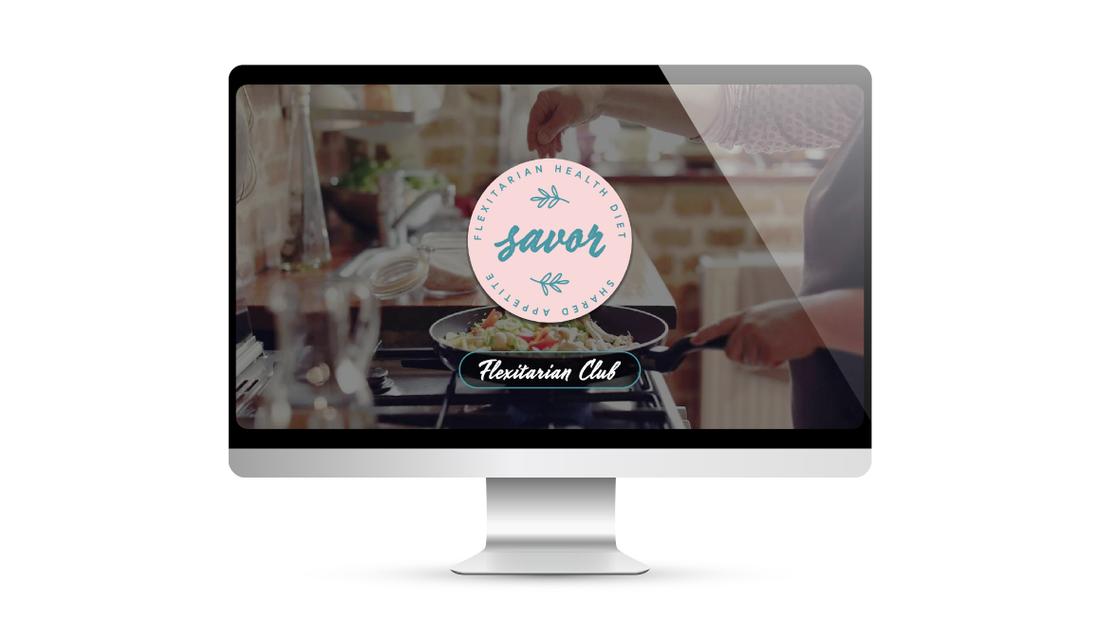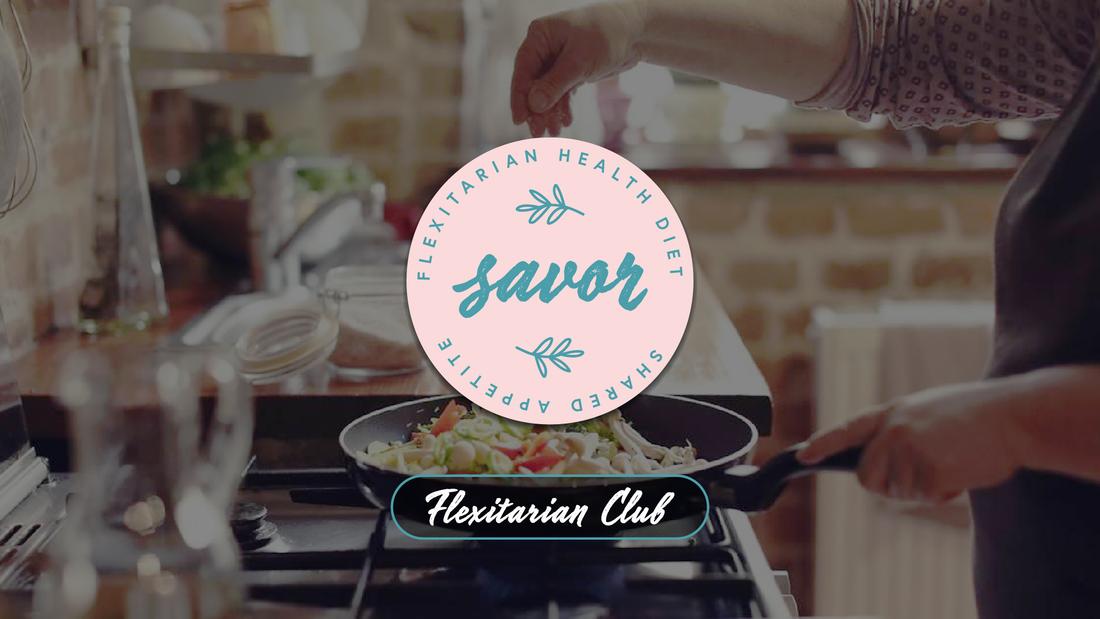Savor - A workshop for improving eating habits
Table of contents
Background
In 2020, the double blow of the pandemic and natural disasters has posed a serious threat to the global food supply. Scientists predict that the global population will reach 9.7 billion by 2050(Elferink & Schierhorn, 2016), which means that the world’s food production will have to increase by up to 70% to meet the demand. (Hunter et al., 2017) So, what can humans eat in the future to ensure the balance of supply and demand?
Are you trapped at home during the pandemic and worry about what you eat every day? Under the conditions of insufficient food supply, how to enrich the diversity of food to meet our daily needs? Are you interested in a vegetarian/vegan diet but failed many times? Why do we know that these foods are very nutritious, but it is still difficult to become a vegan? I generated a huge interest in the food system.
Research
What factors influence people's decision to eat?
How might we encourage people to develop a ‘flexitarian’ diet?
How might we help people keep this new eating habit?
Workshop Framework
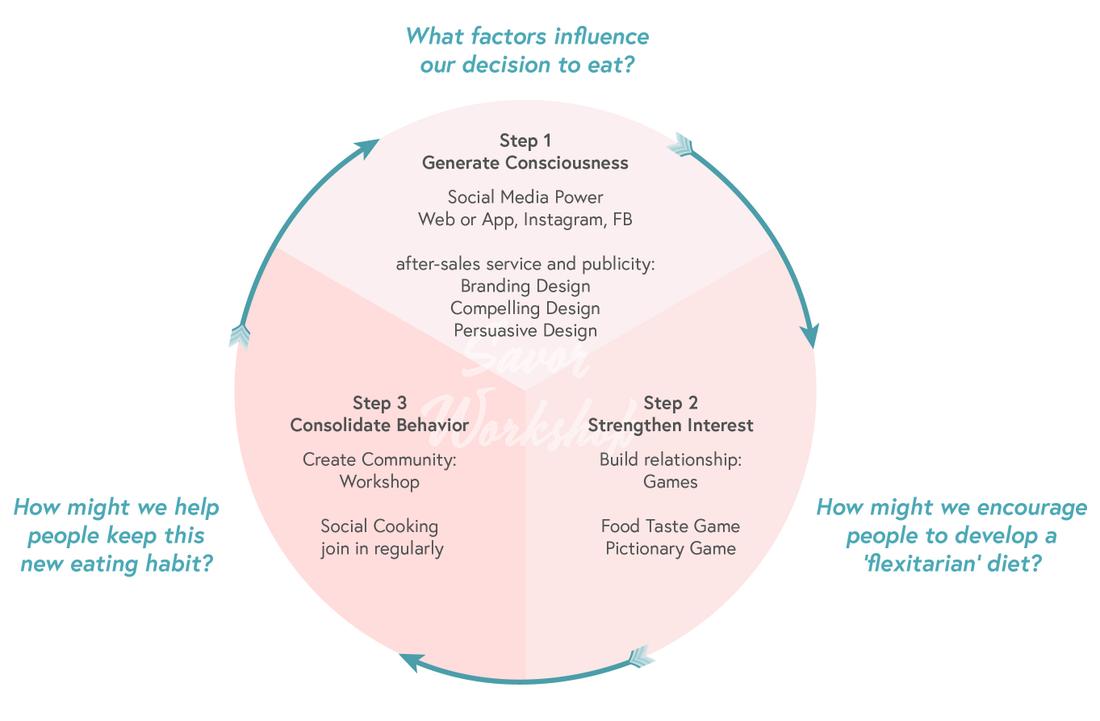
Interview
There are 7 interviewees in total. I divided potential users into three groups and determined my main audience through in-depth interviews with each group. I think the problem faced by beginners (Group 1) is the biggest.
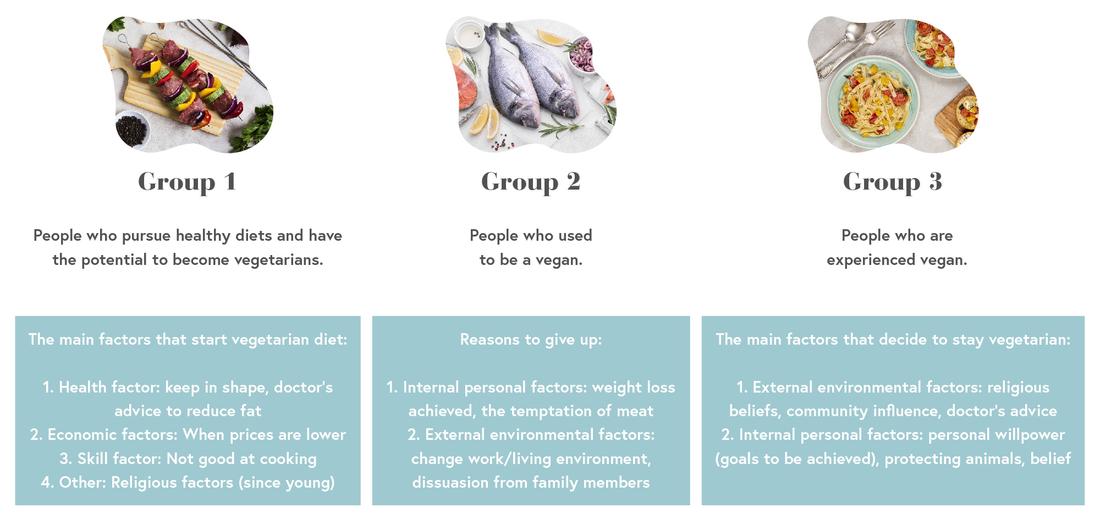
According to the interviews, I found that most people who don’t understand vegetarian food will think that those will increase costs. However, vegans often go to the farmer’s market and cook at home, which actually saves a lot of money. And I found that even if people who used to be a vegan return to eating meat, the frequency is very low.
Persona
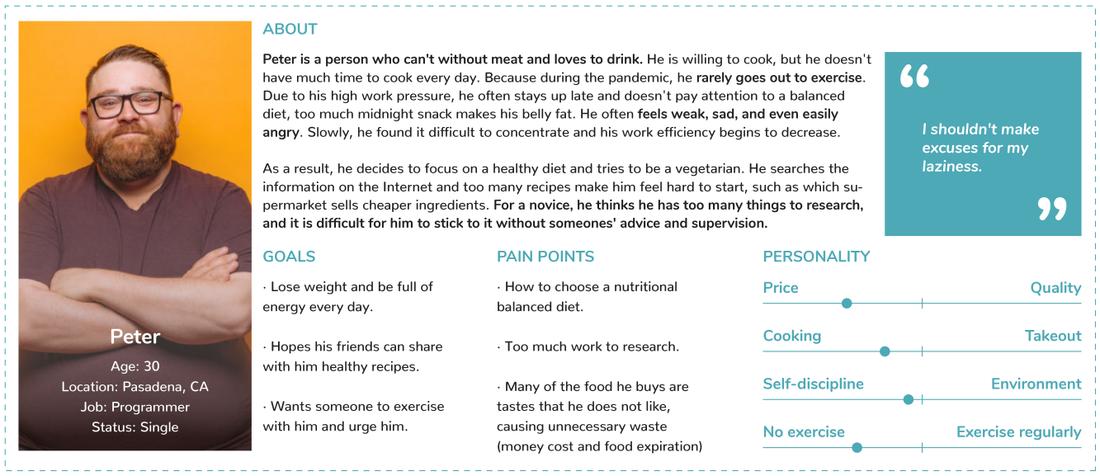
Design
Prototype 1
Food Card Game: similar to the Pictionary game

From the survey data, these cards are difficult and challenging for most people, because many are ingredients. More than half of the people think that the overall experience is a perfect score, and the interactivity and basic knowledge of the game are concentrated in 3 to 4 points. Half of the people on the question of learning more about food after the game gave 4 points, and the rest concentrated on 2 points. From my observation, the online group’s attention is hard to concentrate on. It is inevitable that the online gaming experience is not as good as face-to-face. The reasons may be that the camera cannot show all the participants and the conversation is not clear, making it easier to feel isolated for the online group. If everyone can participate in person, it will be a perfect experience for each other.
Prototype 2
Blindfold Food Test Game named “Trivia of Taste (TOT)”
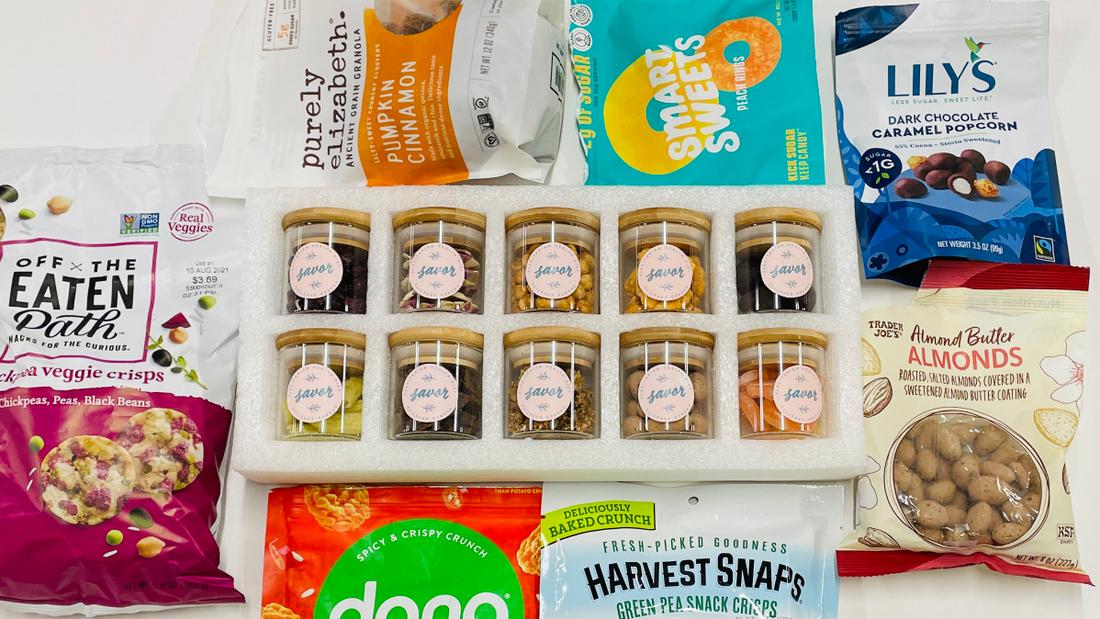
Rules:
- Taste 10 vegetarian snacks and guess what color they are.
- Choose Top 3 foods and draw them on the iPad and explain the reason.
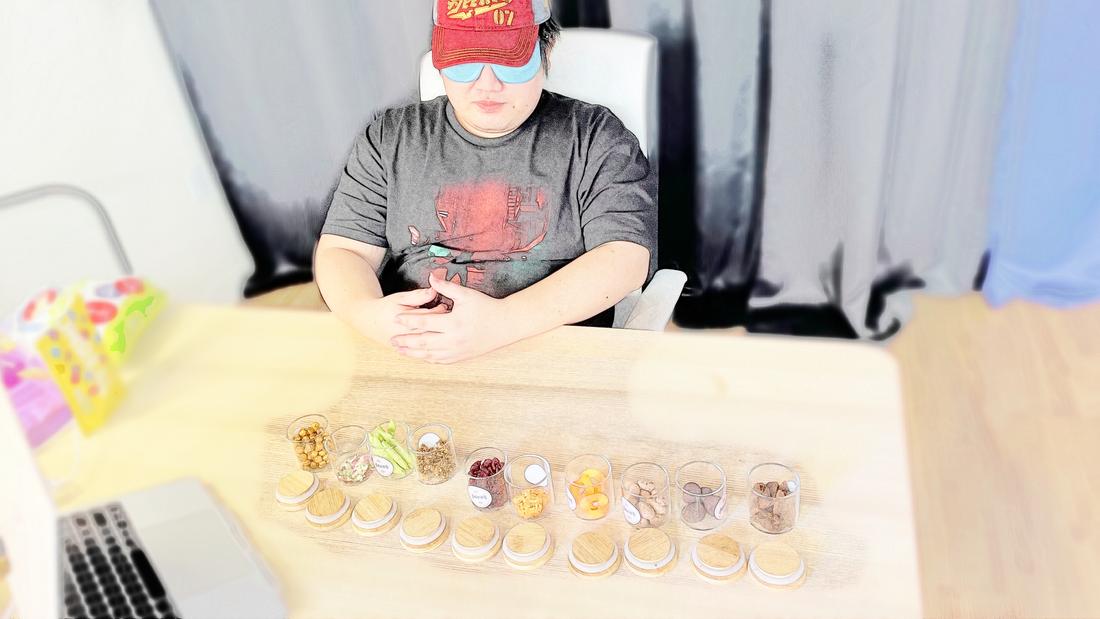
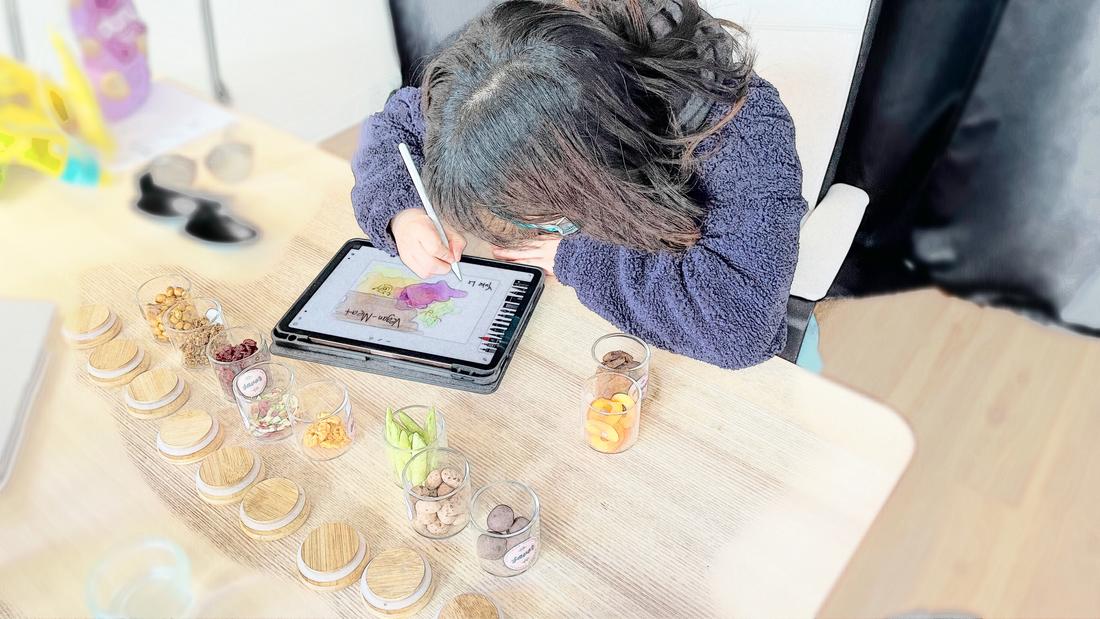
Based on the allergy test mentioned in the feedback, and some participants who do not eat pork reminded me. Before selecting participants, they should be provided with a complete personal questionnaire to help me prepare a more complete recipe. I am surprised that most people think that although the second game is more subjective, the experience is better than the first social activity. At first, I thought that building relationships between communities is a more important factor, but human senses play a more direct role in the curiosity of food cognition.
Prototype 3
Zoom Cooking

Tasks: Score five senses
- Smell: Does it smell good?
- Taste: Does it taste good?
- Color: To what extent does the color of the final dish make you want to eat it more?
- Hearing: To what extent did the whole conversation help you?
- Touch: How fresh is the food?
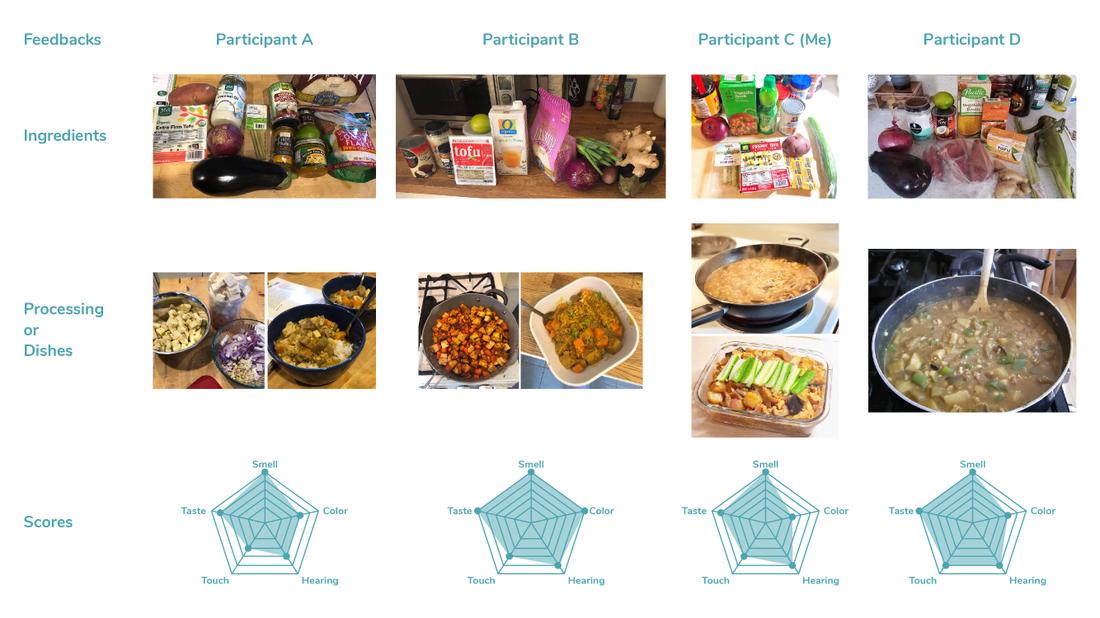
Prototype Conclusion
These three prototypes allowed me to discover the relationship between the five human senses and food. Smell, taste, and even vision directly affect people’s experience. Because of the policy reasons during the pandemic, only one participant has fully tested these 3 activities, and she believes that the overall experience is very good.
To Be Continued: “Savor” Website
